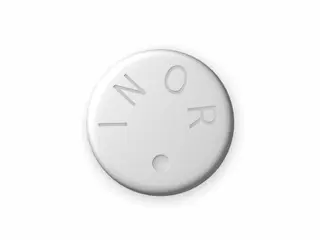Women's Health


Explore a wide range of trusted women's health products including supplements, vitamins, and remedies designed to support hormonal balance, reproductive health, and overall well-being. Shop now for effective solutions tailored to your needs.
Women's Health Medications Overview
In women's health, several medications are widely used to address hormone imbalances, fertility issues, menstrual disorders, and bone health. This review covers some popular drugs often prescribed for such conditions.
Arimidex is an aromatase inhibitor mainly used in breast cancer treatment. It lowers estrogen levels and helps prevent cancer recurrence in postmenopausal women. It can cause joint pain and hot flashes.
Aygestin contains norethindrone. It treats abnormal menstruation, endometriosis, and secondary amenorrhea. It works by regulating hormone imbalance. Common side effects include weight gain and mood swings.
Cialis (tadalafil) is primarily known for treating male erectile dysfunction. Occasionally, it is prescribed off-label for female sexual dysfunction to improve blood flow, but its effectiveness for women lacks solid evidence.
Clomid (clomiphene citrate) is a first-line treatment for female infertility. It induces ovulation in women who do not ovulate regularly. Side effects may include hot flashes, abdominal discomfort, and visual disturbances.
Cycrin contains cyproterone acetate and is used to treat severe acne and hirsutism in women by blocking androgen effects. It also helps in regulating menstrual cycles. Beware of potential liver issues and blood clots.
Cytotec (misoprostol) is used off-label to induce labor or medical abortion. It causes uterine contractions and softens the cervix. It should be used under medical supervision due to risks of heavy bleeding and cramping.
Diflucan (fluconazole) is an antifungal often prescribed for vaginal yeast infections. It is effective and usually given as a single dose. Some patients may experience headaches or nausea.
Dostinex (cabergoline) lowers prolactin levels and treats conditions like hyperprolactinemia. This can help restore normal menstruation and fertility. Side effects include dizziness and nausea.
Duphaston contains dydrogesterone, a synthetic progesterone. It treats menstrual irregularities, threatened miscarriage, and luteal phase defects. It is generally well tolerated but can cause breast tenderness.
Estrace (estradiol) is a form of estrogen therapy. It helps with menopausal symptoms like hot flashes, vaginal dryness, and osteoporosis prevention. Use carries risks of blood clots and certain cancers if misused.
Flibanserin is designed to improve hypoactive sexual desire disorder in premenopausal women. Its effects are modest and it may cause dizziness, nausea, and fatigue. It requires daily dosing.
Fosamax (alendronate) is for osteoporosis treatment and prevention. It slows bone loss and reduces fractures. Patients must follow specific dosing instructions to avoid esophageal irritation.
Levlen is a combined oral contraceptive pill. It contains estrogen and progestin to prevent pregnancy. It also regulates menstrual cycles and reduces acne. Possible side effects include nausea and mood changes.
Mircette is another combined oral contraceptive with low-dose hormones. Its biphasic dosing helps minimize side effects. It provides effective contraception and cycle control.
Nolvadex (tamoxifen) is used to treat and prevent breast cancer. It blocks estrogen effects on breast tissue. Side effects may include hot flashes and increased risk of blood clots.
Ovral is an emergency contraceptive pill. It contains high-dose hormones to prevent ovulation post unprotected intercourse. It can cause nausea and irregular bleeding.
Parlodel (bromocriptine) reduces prolactin levels. It treats disorders like prolactinomas and can restore ovulation. Side effects include headaches and hypotension.
Plan B is a well-known emergency contraceptive. It is most effective when taken within 72 hours of unprotected sex. Side effects include nausea and fatigue.
Ponstel (mefenamic acid) is a nonsteroidal anti-inflammatory drug (NSAID). It treats menstrual pain and inflammation. Use with caution due to possible gastrointestinal side effects.
Prometrium is natural micronized progesterone. It supports luteal phase insufficiency and prevents preterm birth. Side effects are mild but can include drowsiness.
Provera contains medroxyprogesterone acetate. It treats abnormal uterine bleeding and as hormone replacement therapy. Weight changes and mood swings are common side effects.
Serophene is another name for clomiphene citrate. It induces ovulation in infertility cases. See also Clomid for side effects and uses.
Viagra (sildenafil) is primarily for erectile dysfunction in men. Its use in women is experimental and not widely recommended.
Yasmin is a combined oral contraceptive that also treats acne and premenstrual dysphoric disorder. It contains drospirenone, which has a mild diuretic effect. Women with blood clot risk should use with caution.
These medications vary widely in their indications and effects. Many act on hormonal pathways to regulate menstrual cycles, improve fertility, or manage menopausal symptoms. Others prevent or treat infections or osteoporosis.
Side effects and risks are important considerations. Patients must consult healthcare providers for personalized treatment and monitoring. Self-medication is not advised.




















